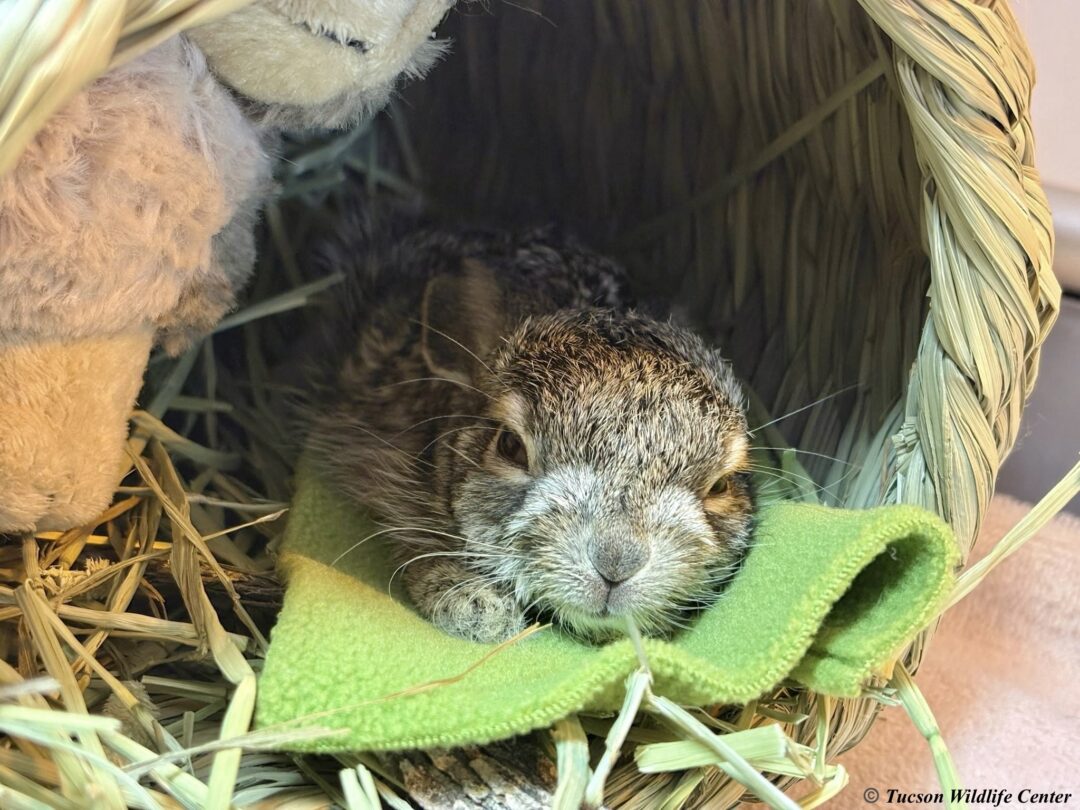
Baby Black-tailed Jackrabbit
This young Black-tailed Jackrabbit was brought to Tucson Wildlife Center after being rescued from a dog attack. Thanks to the quick actions of the finder, this little hare now has a chance to recover. Encounters like this are an important reminder to keep pets on leashes or safely indoors—even gentle pets can unintentionally harm wildlife.
TWC’s wildlife care team quickly began giving the baby fluids to combat dehydration, then started feeding her a specialized formula—that mimics her mother’s milk—and a mixture of dandelion greens, rich in vitamins and minerals. If you find an injured or orphaned wild animal, the most helpful thing you can do is keep it safe and warm and contact Tucson Wildlife Center for advice.
Please don’t try to feed the animal or give it cow’s milk. For young jackrabbits, cow’s milk can cause serious digestive upset, including diarrhea and bloating. This can lead to severe dehydration and reduce their chances of survival.
Fun fact: Jackrabbits are hares, not rabbits, and are less common in our admissions than cottontails. They are known for their remarkable speed and powerful hind legs, which can propel them up to 40 miles per hour to escape predators. Their enormous ears not only help them detect danger but also keep them cool in the desert heat by releasing excess body heat.
With continued care and time to mature, this young jackrabbit will have the chance to return to the desert where she belongs. If you would like to help patients like this jackrabbit, click this link to donate,
Another way you can contribute is to visit our “wish list” on Amazon or Chewy below:
We appreciate it, as will all the wild animals in our care!

Show your support with a minimum $25 donation and we’ll send you a “KEEP TUCSON WILD” sticker. Click the bumper sticker to donate.

